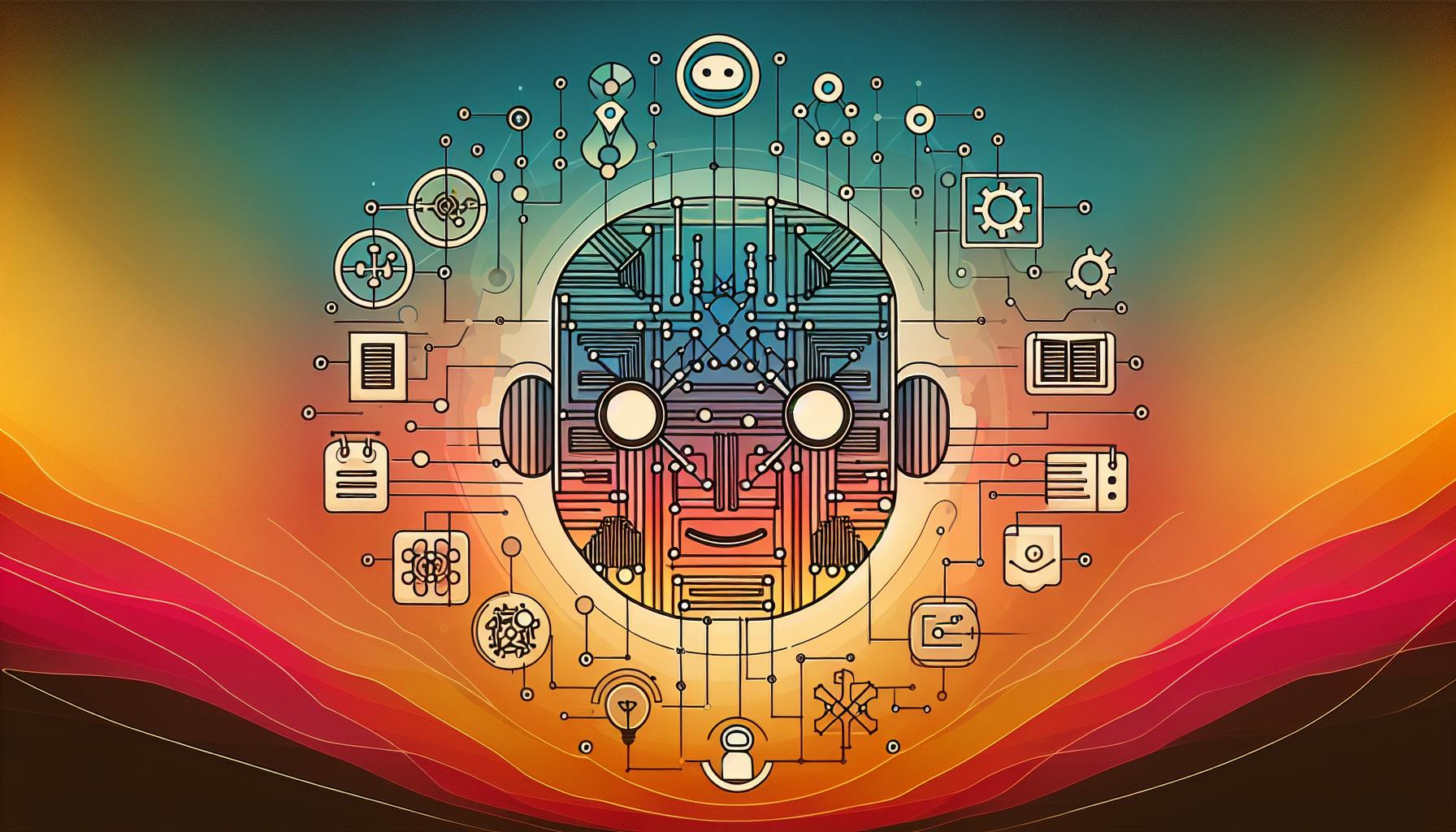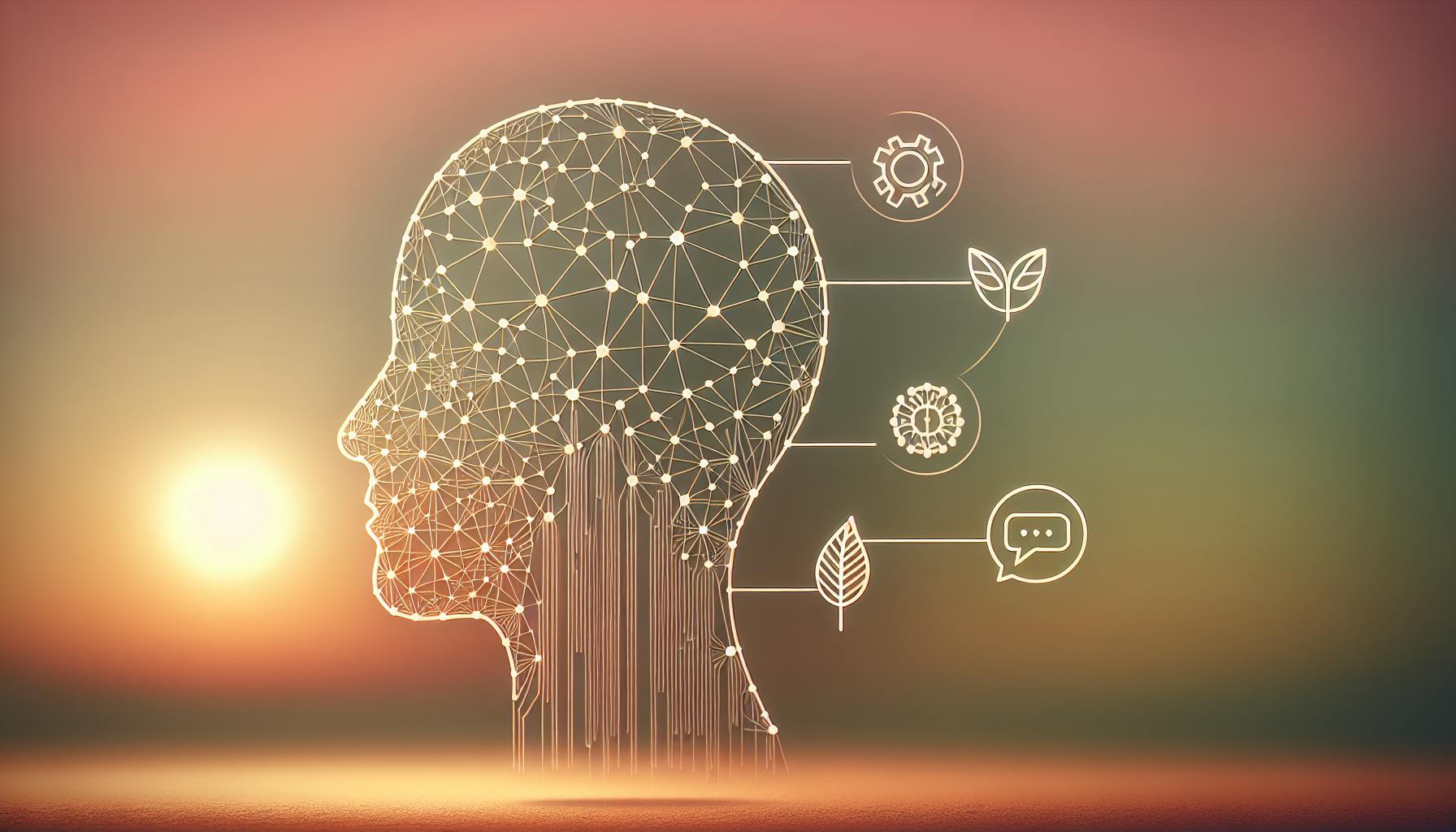ChatGPT has become an incredibly popular conversational AI tool, with over 100 million users in just a few months since its launch. However, as advanced as ChatGPT is, it still has limitations around accuracy, specialized knowledge, and certain use cases. This is where integrating additional artificial intelligence systems, specifically tailored for individual needs and interests, can take ChatGPT to the next level.
In this post, we'll explore the key benefits of augmenting ChatGPT with specialized AI systems, a wide range of real-world examples across different industries, best practices for optimizing integrations, and the future possibilities of customizable multi-agent AI assistants. Let's dive in!
The Benefits of Enhancing ChatGPT with Complementary AI
Adding external artificial intelligence (AI) agents to work alongside ChatGPT's core capabilities can overcome some of its current constraints while greatly expanding functionality. Key advantages include:
✅ Improved Accuracy and Reliability - Niche AI systems trained on specific datasets often outperform ChatGPT on subject matter accuracy and reliability, even with high confidence scores. Combining outputs blends multiple AI perspectives for more precision.
✅ Personalized Experiences - Users can integrate AI systems closely aligned to individual needs and interests such as health, art, music, etc. This enables customized experiences.
✅ Specialized Knowledge - While ChatGPT has broad general knowledge, niche AI models have expert-level mastery of specific domains. Integration grants access to otherwise unavailable skills.
For instance, a writing-focused AI assistant could provide grammar corrections, story plotting advice and content idea generation far beyond ChatGPT's current creative capacity. Purpose-built AI unlocks specialized support.
Overcoming ChatGPT's Constraints
While ChatGPT offers remarkable natural language capabilities, key areas for improvement remain, including:
- Factual Accuracy - Without real-world knowledge, generated responses can often contain false or illogical information. External AI can help validate facts.
- Limited Specialist Skills - ChatGPT has generalist knowledge. Deep expertise across niche domains is restricted. Targeted AI adds missing skills.
- Unreliable Confidence Scores - High confidence percentages do not always equate to accurate answers. Additional perspectives mitigate this risk.
- Lack of Personalization - ChatGPT cannot tailor responses to individual contexts. Custom AI integration enables this.
Strategic augmentation with complementary AI systems tailored to specific use cases and interests can solve many of these problems at scale.
Real Companies Integrating AI to Enhance ChatGPT
Here we highlight real-world examples of companies building specialized artificial intelligence systems to unlock new possibilities when combined with ChatGPT:
MedGPT by Anlan Health (anlanhealth.com) - Focused on medical knowledge for faster patient diagnosis, treatment planning, and care triage based on symptoms. Significantly advances ChatGPT's limited healthcare capabilities.
Legal Robot by LegalSifter (legalsifter.com) - Specialized AI assistant with legal knowledge and document review abilities for surfacing key insights from case files to assist lawyers. Better results than ChatGPT alone.
Wombo Art Generator (wombo.art) - Leading AI model for generating unique art, images and animations. Unlocks creative abilities beyond ChatGPT's text and speech centric-skills.
Rytr AI Writing Tool (rytr.me) - AI writing assistant that helps craft emails, essays, code documentation and more. Stronger results compared to ChatGPT across key writing use cases based on niche training.
The options are expanding rapidly as companies race to build specialized AI products in nearly every industry. Targeted integration unlocks substantial benefits not possible within ChatGPT alone today.
Optimizing AI Integrations With ChatGPT
To effectively enhance ChatGPT's core capabilities with complementary AI models, best practices include:
Match Integrations to Use Cases - Carefully select only niche external AI systems designed to directly address specific limitations or gaps in ChatGPT's native skills. Avoid generalist addons that provide no incremental value.
Tune Confidence Thresholds - Balance automation versus manual human confirmation of AI-generated outputs based on confidence scores and use case sensitivity. Bolster checks and approvals for riskier applications.
Coordinate Agent Perspectives - Orchestrate how multiple AI systems collaborate to ensure consistency and reduce conflicting advice. Humans may need to arbitrate disputes in some cases.
Continuous Improvement - Additional human feedback, prompt tuning, and model retraining over time all help further optimize AI integrations and minimize errors. This refinement is an ongoing process.
The key is fully understanding target use cases and then carefully customizing the coordination process between ChatGPT and specialty AI models. Rather than adhoc augmentation, integrations must provide clear added value.
The Future with Multi-Agent AI Assistants
As AI capabilities continue rapidly advancing, customizable multi-agent assistants combining the strengths of both broad platforms like ChatGPT and highly-targeted specialty models will likely dominate the next wave of evolution for virtual assistants.
Democratized Expertise - Specialist AI already makes niche skills more accessible. Soon advanced expertise across nearly every industry will be available on-demand.
User Control - Individuals will selectively choose AI capabilities from an expansive catalogue aligned only to their needs and interests for customization.
In addition to democratized expertise and user control over highly-tailored experiences, improvements in confidence scoring, fact-checking, and agent coordination will enable multi-AI agents to collaborate seamlessly.
Platforms like Anthropic's Claude aiming to allow safe and controllable AI model customization provide a glimpse into the future of specialized assistants.
The All GPTs Directory Vision
As this transformation accelerates, the All GPTs Directory seeks to serve as the leading catalogue of niche GPT models across every use case to help individuals augment ChatGPT specific to their needs.
With custom GPT integrations spanning healthcare, legal, creative arts, writing, enterprise applications, and more, users can easily find and activate relevant AI agents to overcome ChatGPT's limitations while unlocking specialized skills and expertise.
As the definitive marketplace connecting ChatGPT users to targeted specialty AI solutions, All GPTs Directory provides the building blocks for the next generation of customizable multi-agent virtual assistants tailor-made for individual needs.
Key Takeaways
In summary, complementing ChatGPT's generalist knowledge with specialized AI systems helps overcome accuracy and personalization limitations while unlocking new capabilities.
Real-world integrations are already demonstrating substantial benefits versus relying solely on ChatGPT across healthcare, legal, art, writing and other niche domains.
Carefully customizing and orchestrating multi-AI agent collaboration based on individual use cases is key to optimization. As AI progresses, personalized and customizable multi-agent assistants will likely dominate moving forward.
All GPTs Directory provides access to this growing catalogue of targeted GPT solutions to take your ChatGPT augmentation to the next level based on your unique needs!


